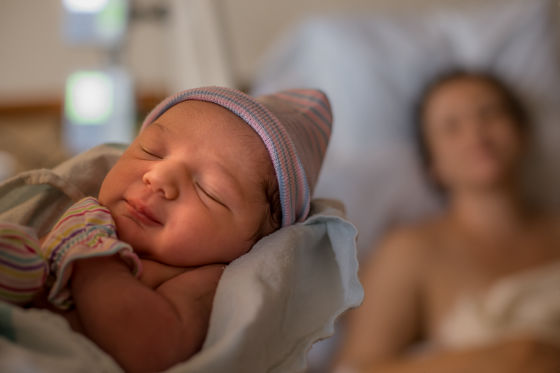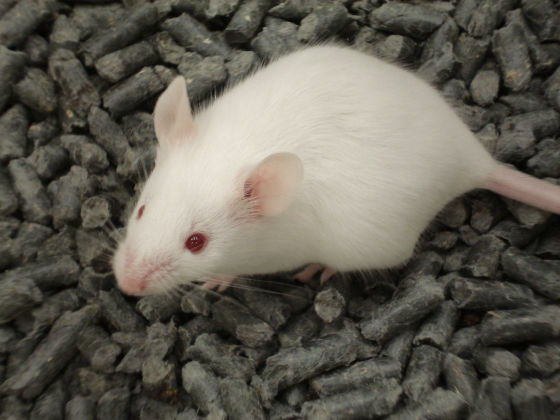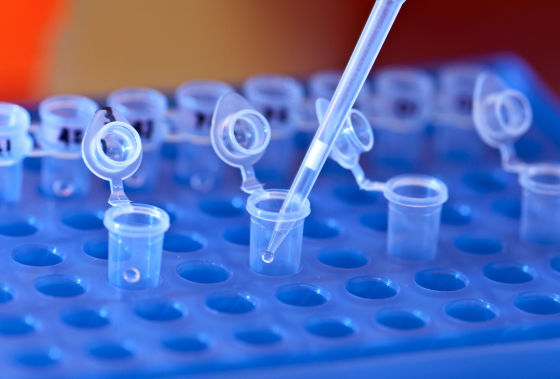Possibility that the stress response of descendants is affected via sperm miRNA

ByZappys Technology Solutions
The research team of the University of Pennsylvania discovered that responses to stress are different between parents and children in experiments using mice and the possibility that miRNAs contained in the sperm of the paternal mouse will be the cause has come up.
Transgenerational epigenetic programming via sperm microRNA recapitulates effects of paternal stress
http://www.pnas.org/content/early/2015/10/14/1508347112
Paternal stress given to offspring via RNA packed into sperm | Ars Technica
http://arstechnica.com/science/2015/10/paternal-stress-given-to-offspring-via-rna-packed-into-sperm/
Sperm RNAs Transmit Stress | The Scientist Magazine
http://www.the-scientist.com/?articles.view/articleNo/44273/title/Sperm-RNAs-Transmit-Stress/
Muscles trained with exercises and things that human beings gained through environmental influences during their lifetime as "Acquired traitAs for the possibility that this acquired trait can be inherited, in 1801, a naturalistJean-Baptiste LamarckIt is the agenda that we advocated and attracted many researchers.
Charles Darwin's embodied "Natural selection theory"Although the debate on acquired genetic heritage has declined, studies to study the genetic mechanism that is acquired afterwardsEpigeneticsHas appeared in the 1940's, and many studies on mutation accompanied by acquired action without change of DNA sequence were done.

ByHoward Ignatius
Recently, several studies have been conducted that parents' stress and nutritional status influence the health of descendants, but many of them have been investigated in part of "Why and how stress and nutrition are transmitted to offspring" He said he was unable to clarify details. However, by the research team at the University of Pennsylvania, the mystery of its mechanism is gradually becoming clear.
The research team continued to give male mice a variety of stresses such as light, smell, sound, new experiences, changes in the environment, etc. over 6 weeks, and the male was stressed in the same environment as the parent in the child born with the female And investigated whether there is a change in the stress response by measuring corticosterone which secretion increases at the time of stress application.

ByRick Eh?
As a result of the survey, children 's mice were found to have less corticosterone secretion than parents in the same circumstances, and from the area of the hypothalamus in the brain, which is strongly related to stress, via the pituitary gland A series of systems leading to the adrenal gland "Hypothalamic-pituitary-adrenal glandI understand that the reaction of "It is low" is low. It was also revealed that the level of miRNA (microRNA) contained in male sperm increased.
Based on the results of this survey, the research team set up the hypothesis that "miRNAs contained in male sperm are responsible for decreasing the amount of corticosterone secretion in children," and hypothesizes that the miRNA contained in the male sperm has a similar sequence The miRNA mixture was given to a fertilized egg of a single cell mouse and an experiment was conducted to give the born child a stress in the same environment as the previous survey. Children of mice born from fertilized eggs had miRNAs of the same sequence as children born to stress-bearing parents, and when subjected to stress in exactly the same environment as before, corticosterone secretion level and thalamus The same reaction was confirmed due to lowering of the pituitary - adrenal response, and it was concluded that "inheritance of response to stress" is related to "miRNA of parental sperm".

ByUniversity of Michigan School of Natural Resources & Environment
Analysis of the cells of the fertilized eggs fertilized with the miRNA mixture revealed that female miRNAs are important elements for managing the structure of the chromosomeMRNA, And found that mRNA levels in fertilized eggs were extremely low. According to the research team, it is said that a decrease in the mRNA level in fertilized eggs causes a change in gene expression, which may affect the response to stress.
Michael Skinner, who studies epigenetics at Washington State University, said, "I think that the research at the University of Pennsylvania is a wonderful and thoroughly planned study," he said. In the future, the research team will investigate how stress given by male has changed sperm miRNA and investigate the response to stress not only to children but to grandchildren generation.
Related Posts:
in Science, Posted by darkhorse_log







